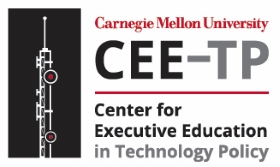Standards Development
Instructor: Marvin Sirbu, Professor, Carnegie Mellon University
This course will give participants an understanding of how technical standards for telecommunications systems are developed, including the various approaches to standards development, the use of open standards, the multi-stakeholder approach to standards development, and how governmental and intergovernmental bodies relate to private sector standards bodies. The course describes private industry-led standards bodies, such as the 3rd Generation Partnership Project (3GPP), which has produced standards for multiple generations of cellular systems. It will describe international non-profit organizations that run open standards processes. This includes the Institute of Electrical and Electronics Engineers (IEEE), which has produced networking standards for networking technologies like Wi-Fi and ethernet, and the Internet Engineering Task Force (IETF), which has produced standards for the Internet such as Transmission Control Protocol (TCP) and Internet Protocol (IP). The course will describe the role of the International Telecommunications Union (ITU), when it allocates spectrum for various types of usage, and when considering the new Internet protocol that has been proposed by the Government of China. The broader implications of creating a standard through a private sector open standards process versus an intergovernmental organization will be discussed.
- This course is intended for people whose professional activities involve telecommunications standards or standards bodies.
- Upon completing the course, participants will have a deeper understanding of how standards are made today, the pros and cons of different approaches to standards development, and how the process of standards development can affect the outcome and the benefits derived.
- Some familiarity with common telecommunications standards is useful, but no prior knowledge is required.
